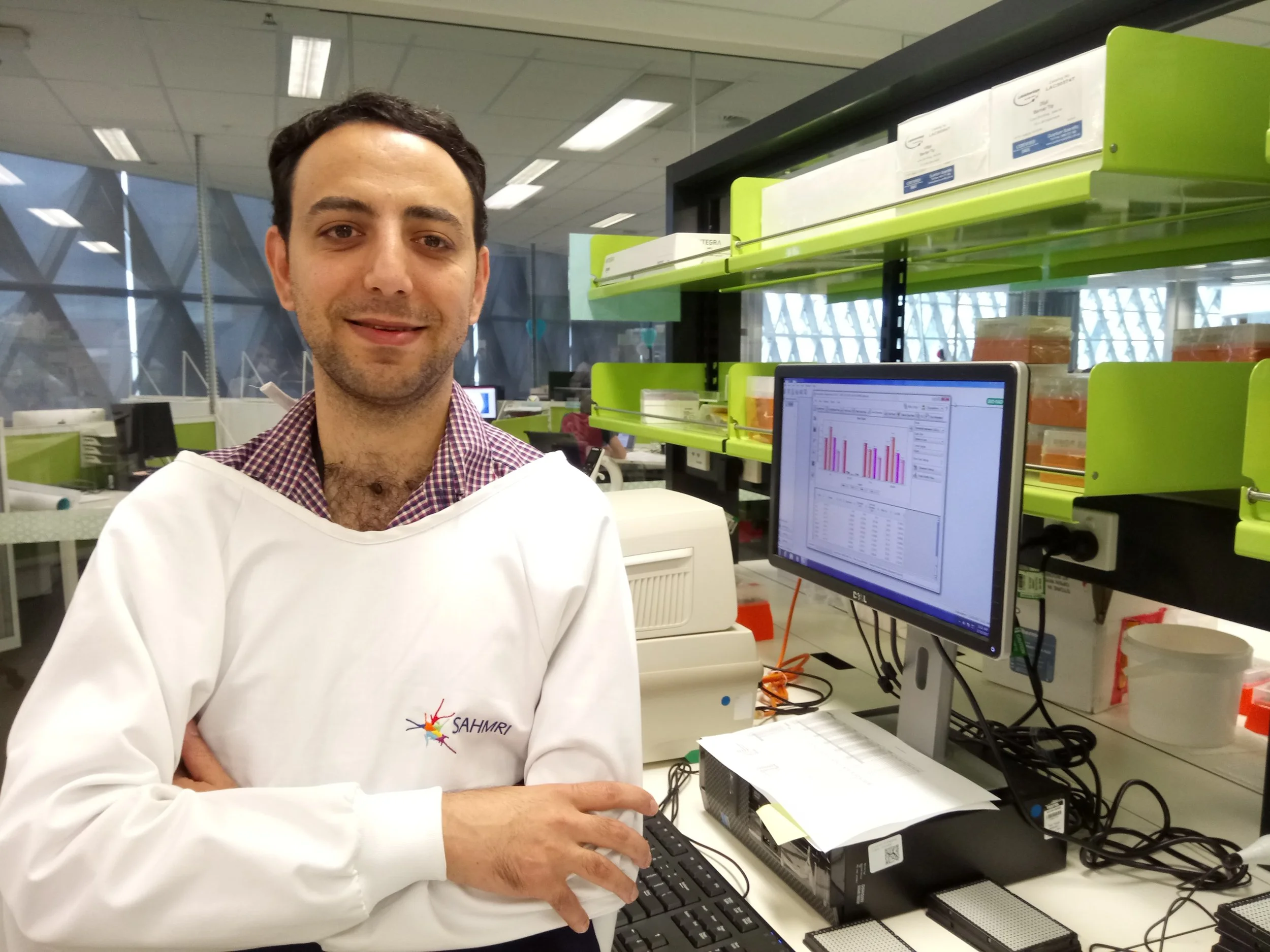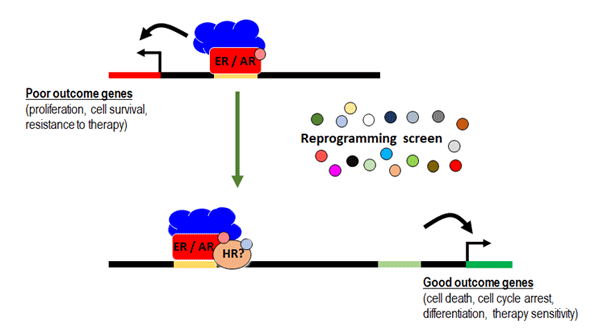The University of Adelaide and South Australian Health and Medical Research Institute (SAHMRI)
Contact: Professor Gary Wittert
Fostering transnational research partnerships to advance men's health
Fostering transnational research partnerships to advance men's health.
Smith JA, Watkins DC, Griffith DM.
Am J Mens Health. 2020 Jul-Aug;14(4):1557988320936893. doi: 10.1177/1557988320936893
Contact: Professor James Smith
Lipids and cancer - Review
Lipids and cancer: Emerging roles in pathogenesis, diagnosis and therapeutic intervention.
Butler L, Perone Y, Dehairs J, Lupien LE, de Laat V, Talebi A, Loda M, Kinlaw WB, Swinnen JV.
Adv Drug Deliv Rev. 2020 Jul 22:S0169-409X(20)30097-1. doi: 10.1016/j.addr.2020.07.013.
Contact: Professor Lisa Butler
Indigenous male health and wellbeing
This research program investigates the supportive and inhibitive factors of Indigenous males’ participation and achievement in higher education, in addition to health promotion strategies for Indigenous males.
Menzies School of Health Research
Contact: Professor James Smith
Testosterone for Type 2 Diabetes prevention
Type 2 diabetes is highly prevalent in men over the age of 50 which leads to serious health complications. The Director of the Freemasons Centre for Male Health and Wellbeing (SA Division), Professor Gary Wittert, has led a national multi-centre study to answer the question of whether testosterone can decrease the risk of type 2 diabetes in men, after two years of treatment.
Lead site: The University of Adelaide
Contact: Professor Gary Wittert
Grant to examine mental health pre and post COVID-19
Professor Robert Adams (affiliate), Professor of Respiratory and Sleep Medicine and the Adelaide Institute for Sleep Health, and Professor Gary Wittert, Dr Tiffany Gill and Professor Catherine Hill from the University of Adelaide, and Professor Malcolm Battersby, Head of Psychiatry at Flinders University, have been awarded a Hospital Research Foundation grant for $50,000 to define how measures imposed during the COVID-19 pandemic have altered the trajectory of mental health and well-being of middle-aged and elderly South Australians.
The study, which will begin shortly, will be undertaken by interviewing participants of two longitudinal population cohort studies, the Florey Adelaide Male Ageing Study coordinated by the Freemasons Foundation Centre for Men’s Health and the North West Adelaide Health Study, coordinated by the Population Research Outcomes Studies Unit which works in close partnership with the Freemasons Foundation Centre for Men’s Health.
See the Hospital Research Foundation announcement here
https://www.hospitalresearch.com.au/news/latest-stories/mental-health-insights-pre-and-post-covid-19
Testosterone – When there is too much or not enough
The Director of the Freemasons Foundation Centre for Men’s Health and Endocrinologist Professor Gary Wittert recently joined other national experts Professor Rob McLachlan, Medical Director of Healthy Male which provides resources on male reproductive and sexual health, and Professor Helena Teede, Women’s Health at Monash University, in talking to ABC Radio’s Cassie McCullagh all about testosterone.
Specifically why testosterone is so important for men’s health and women’s health and what happens if it’s too high or too low and the diseases and conditions associated with it are discussed at length, and questions from listeners were answered.
To listen go to:
https://www.abc.net.au/radio/sydney/programs/focus/testosterone/11985036
Early phase clinical trial of ribociclib for prostate cancer
A clinical trial of the cyclin dependent kinase inhibitor, ribociclib, is underway in collaboration with the Chris O’Brien Lifehouse in Sydney.
ANZCTR Study ID: ACTRN12618000354280
Contact: Professor Lisa Butler
Tailored invitation for men improves uptake of national colorectal cancer screening
Professor Deborah Turnbull from the Freemasons Foundation Centre for Men’s Health and the School of Psychology at the University of Adelaide has led a research collaboration with CSIRO, Flinders Centre for Innovation in Cancer, Flinders University, and Cancer Council South Australia aimed at improving men’s uptake of the Commonwealth funded colorectal cancer screening program. The results have recently been published In the journal of Social Science in Medicine.
In their study involving 9216 Australian men aged 50-74 years, they found that after applying health behaviour theories to modify the advance-notification letter (sent in advance of the testing kit arriving), men were 12% more likely to screen than those who received the standard version.
This increase in uptake is very significant. It equates to 34,414 additional men screening, 2,409 additional positive tests, 75 suspected or confirmed cancers and 207 (161 advanced, and 46 small) adenomas. Colorectal adenomas (polyps) are benign, noncancerous growths, but which may transform into cancerous lesions if they are not removed, highlighting one of the important benefits of screening and early detection.
Lipids, metabolomics & prostate cancer
Lipids (fatty acids) can profoundly influence prostate cancer cell behaviour, including disease aggressiveness and resistance to drugs. We are using this knowledge to i) develop sensitive probes for lipid biomarkers to predict disease behaviour and the likely response of men to different prostate cancer drugs to better guide treatment and improve health outcomes, ii) evaluate lipid enzyme inhibitors as a novel drug approach for treating prostate cancer, and iii) better inform lifestyle-related prevention strategies to reduce the risk of aggressive disease.
Prostate Cancer Research Group
South Australian Health and Medical Research Institute (SAHMRI), The University of Adelaide
Contact: Professor Lisa Butler
MAILES Longitudinal male ageing study
The Men Androgen Inflammation Lifestyle Environment and Stress (MAILES) study is one of Australia's most comprehensive biomedical studies on male health and wellbeing with ageing. This study continues to improve our understanding of health trajectories of men over time, the risk factors for, and interrelatedness of, conditions commonly effecting men and using this knowledge to inform preventative health strategies, and to improve screening and early intervention, treatment approaches and outcomes.
The University of Adelaide and South Australian Health and Medical Research Institute (SAHMRI)
Contact: Professor Gary Wittert, Dr Sean Martin, Professor Robert Adams
Pre-conception health, sperm health and child health outcomes
The responsibilities of fatherhood start well before conception. Our research examines the biology of how disease risk is transferred via sperm and use this knowledge to develop tests of risk and interventions targeting men at the family planning stage.
The Robinson Research Institute, The University of Adelaide, and South Australian Health and Medical Research Institute (SAHMRI)
Contact: Dr Nicole McPherson
Androgen receptor (AR) signalling and drug resistance in prostate cancer
The androgen receptor (AR) is a key protein in prostate cells that binds androgen sex hormones (e.g. testosterone) that drive prostate cancer development and progression. We are leading research developing and trialling new androgen receptor targeted drugs to combat drug resistance and fatal disease.
The University of Adelaide
Contact: Professor Lisa Butler, Associate Professor Luke Selth
Older News Blogs - including from the former Freemasons Foundation Centre for Men's Health
For older news items for the Freemasons Centre for Male Health & Wellbeing and the former Freemasons Foundation Centre for Men’s Health scroll down at:















